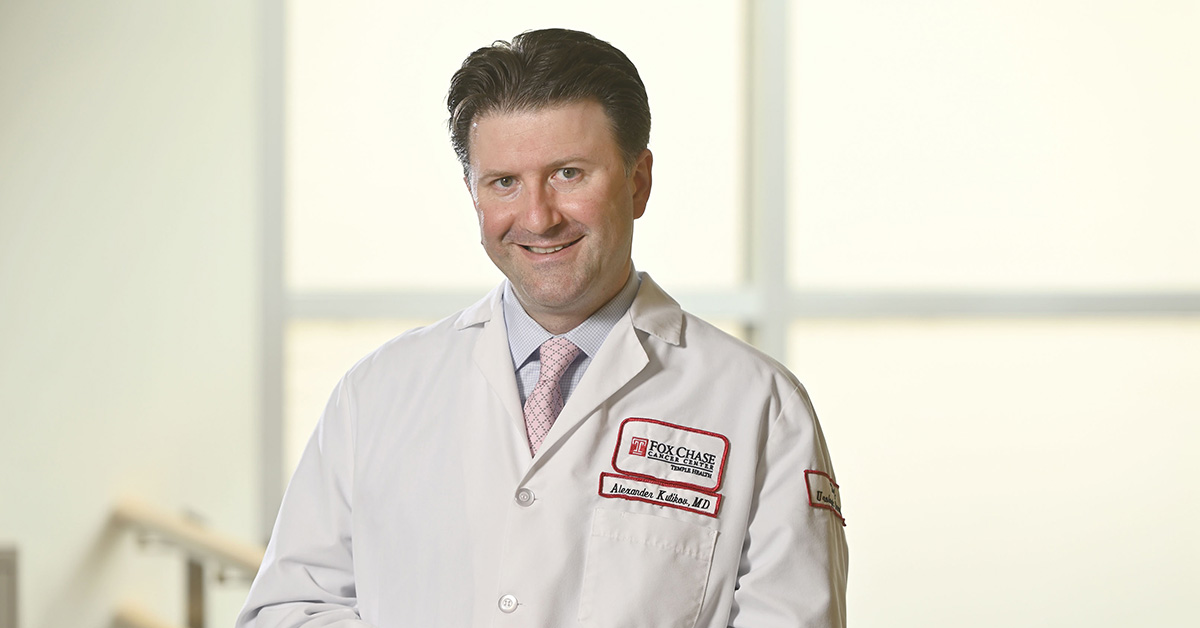
PHILADELPHIA (April 16, 2021)—Alexander Kutikov, MD, FACS, chief of the Division of Urology and Urologic Oncology at Fox Chase Cancer Center, co-authored two publications examining important treatment decisions in kidney cancer and illustrating the role of minimally invasive partial nephrectomy—partial removal of the kidney—in the treatment of renal masses, which are abnormal growths on the kidney.
“Small renal masses have very nuanced decision-making wrapped around them. This was a collaborative review with leaders from around the globe trying to crystallize the key decision points and factors that go into them,” said Kutikov. “All the decision points have multiple variables that feed into them, such as patient factors, surgeon factors, and tumor factors.”
The authors identified three critical decisions that must be made for successful treatment of renal masses. The first involves surveillance versus treatment. According to Kutikov, the decision to treat a tumor at all can be very important because, in some patients, it is safer and more appropriate to just closely monitor the tumor.
If the decision is made to treat the tumor, the second key decision point is how to approach the treatment. Kutikov said this could mean removing the whole kidney or part of the kidney, or using ice or heat, also known as ablation, to destroy the tumor. The last key decision is selecting the right technique— laparoscopic, robotic, or small incision—once the need for surgery is determined.
One type of surgery that requires particular expertise and critical decision-making is the minimally invasive partial removal of the kidney. Kutikov said this can be especially difficult to perform in patients who have had previous abdominal surgery or in those who have a tumor in a challenging location. In those cases, Kutikov said an effective technique used by surgeons at Fox Chase is the retroperitoneoscopic robotic partial nephrectomy.
This technique allows surgeons to go behind the kidney and remove the tumor from a location behind the peritoneum, a membrane that lines the cavity of the abdomen and abdominal organs, without having to encounter scarring from a previous surgery. Kutikov said this technique allows surgeons to remove a tumor from the kidney without affecting the patient’s overall kidney function.
“Decisions are more important than incisions. At Fox Chase, we’re expert surgeons and we really pride ourselves on offering advanced surgical techniques for our patients,” said Kutikov. “This work really highlights that before someone comes to surgery, they need to see experts who understand the biology and the natural history of disease to make sure surgery is really the right answer for them.”
“Role of Minimally Invasive Partial Nephrectomy in the Management of Renal Mass,” was published in the journal Translational Andrology and Urology; “Collaborative Review: Factors Influencing Treatment Decisions For Patients With a Localized Solid Renal Mass,” was published in the journal European Urology, which is considered by many to be the top journal in the field of urology.